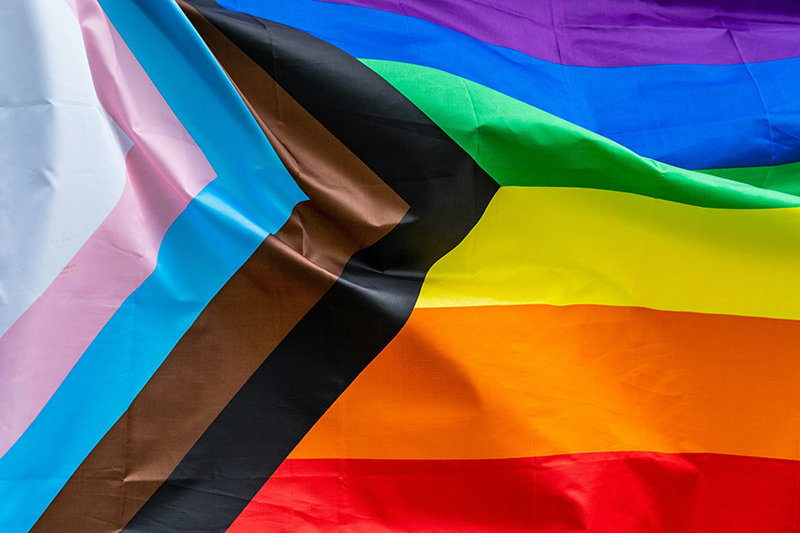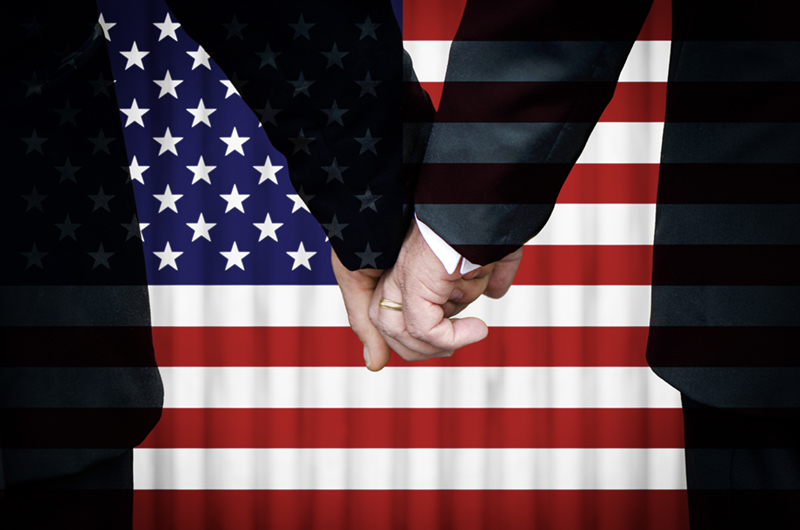Acceptance of homosexuality has risen worldwide, but is highly unpopular in poorer, more religious nations
Acceptance of homosexuality is generally higher in Western Europe and the Americas, and more affluent nations

A new report by Pew Research Center examining attitudes towards homosexuality across 34 countries finds that acceptance of homosexuality has increased since 2002 by double-digits in most of the countries surveyed, but regional and economic divides continue to persist.
According to the report, countries in the Americas and Western Europe. Meanwhile, acceptance of homosexuality is supported by a minority of residents from countries in Eastern Europe, the Middle East, and sub-Saharan Africa. Residents of countries in Asia are split in their assessment. Pew surveyed more than 38,000 people in 34 countries over a nearly five-month-long period from May 13 to Oct. 2, 2019.
Among the countries with the highest levels of support for homosexuality are: Spain, where 89% say it should be accepted by society, France and the United Kingdom, where 86% of residents say it should be accepted, and Canada, where 85% say it should be accepted. In Eastern Europe, support falls significantly compared to Western Europe, with a plurality or minority of residents supporting homosexuality in Hungary (49%), Poland (47%), Bulgaria (32%), and Lithuania (28%).
In the three Latin American countries surveyed, strong majorities say they accept homosexuality in society, with 69% of Mexicans saying so, 67% of Brazilians saying so, and 76% of Argentinians saying so.
Countries that are more affluent are also generally more accepting of homosexuality. For example, in Sweden, the Netherlands, and Germany, all of which have a per-capita gross domestic product over $50,000, acceptance of homosexuality is among the highest among all 34 nations surveyed, reaching highs of 94%, 92%, and 86% of residents who say homosexuality should be accepted by society. Comparatively, in Nigeria, Kenya, and Ukraine, where per-capita GDP is under $10,000, only 7%, 14%, and 14%, respectively, say homosexuality should be accepted.
The report also examines the differences between people’s ideological identification and their views of homosexuality, and the role that their demographic characteristics — such as their level of educational attainment, age, sex, or religious beliefs — play in their views of homosexuality.
In 22 of 34 countries surveyed, younger adults are more likely to support homosexuality than their older counterparts. The difference is most pronounced in South Korea, 79% of 18- to 29-year-olds say homosexuality should be accepted by society, compared with only 23% of those over age 50. In Japan, the gap between the level of support among the youngest and oldest age groups is 20 points, with 92% of those under age 29, and 56% of those over age 50, saying they are supportive of homosexuality.
See also: Nearly 1 in 5 Russians believe LGBTQ people should be “eliminated,” poll says
In most of the countries surveyed, there are no significant differences between men and women’s attitudes toward homosexuality. However, for the 12 countries where there was a gender gap, women were more likely to approve of homosexuality than men.
In nearly all countries, respondents with higher levels of educational attainment are significantly more likely to say that homosexuality should be accepted in society than those with lower educational attainment. There’s also a disparity based on incomes, with higher-income earners more likely to be accepting of homosexuality.
In many of the countries, those on the political left tend to be more accepting of homosexuality than those on the ideological right. In 25 of the countries, religion is a key factor, with acceptance higher among those who say religion is “somewhat,” “not too,” or “not at all” important in their lives than those who say it’s “very important.”
Support is higher among those who identify as religiously unaffiliated than those affiliated with a particular religion. Among Christians in majority-Christian nations, Catholics are generally more accepting than homosexuality than Protestants and evangelicals. In the few countries surveyed that have significant Muslim populations, acceptance of homosexuality is low among adherents of Islam. Jews in Israel are more likely to say that homosexuality is acceptable than Israeli Muslims.
Read more:
Bakersfield police investigating beating that nearly killed transgender teen
Conservatives fume after Amazon removes anti-gay group from charitable donation program
Support Metro Weekly’s Journalism
These are challenging times for news organizations. And yet it’s crucial we stay active and provide vital resources and information to both our local readers and the world. So won’t you please take a moment and consider supporting Metro Weekly with a membership? For as little as $5 a month, you can help ensure Metro Weekly magazine and MetroWeekly.com remain free, viable resources as we provide the best, most diverse, culturally-resonant LGBTQ coverage in both the D.C. region and around the world. Memberships come with exclusive perks and discounts, your own personal digital delivery of each week’s magazine (and an archive), access to our Member's Lounge when it launches this fall, and exclusive members-only items like Metro Weekly Membership Mugs and Tote Bags! Check out all our membership levels here and please join us today!


























You must be logged in to post a comment.